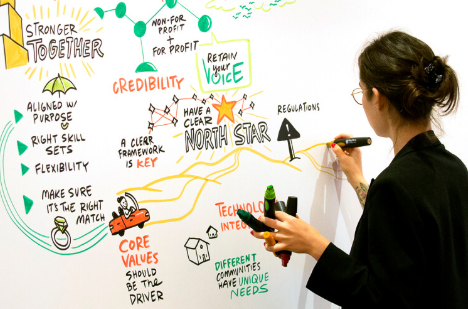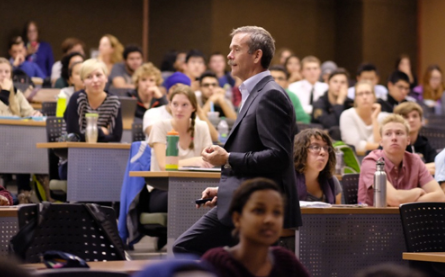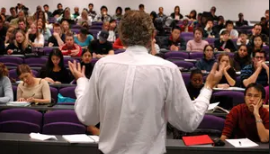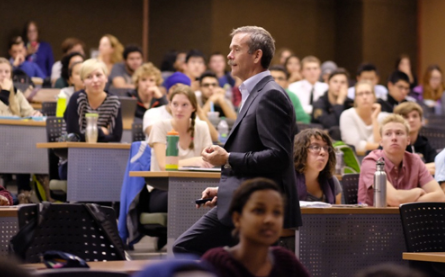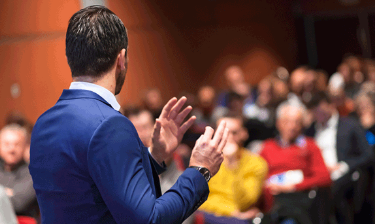TOEFL スピーキング Question 4 学習ステップ

マイチューター 「TOEFL スピーキング Perfect Master (Intermediate)」
カリキュラムでは、Question 4 対策として、試験問題標準レベルで様々な
トピックを使い、以下の流れで効果的、実践的な練習を繰り返し、
スコアアップへ導きます。
目標スコアー 80点(Speakingセクション 20点)を目指す受講者に適した
カリキュラムになっています
学習ステップ
ステップ 1 リスニング &メモ取り アカデミックなトピックの講義を聞き概要をメモします。
↓
ステップ 2 解答の構成 解答へ導くため用意された5つの質問に解答します。
↓
ステップ 3 解答の作成 テンプレートを使い解答文を作り、スピーチをします。
↓
ステップ 4 比較と復習 模範解答を聞いて、自分の解答と比較します。
▮ Listen
STEP 1 | Listening & Note Taking | Listen to a lecture , and take notes.

メモ取り

Note-Taking
_________________________________________________________________
_________________________________________________________________
_________________________________________________________________
__________________________________________________________________
Question
Using points and examples from the lecture, explain the two different theories on why the dinosaurs became extinct.
STEP 2 |Organizing 解答の組み立て| Ask yourself the following questions and organize your ideas
- What is the topic of the professor’s lecture?
- According to the professor, what happened when a meteor or asteroid struck Earth?
- Why do people believe that this strike caused the dinosaurs to become extinct?
- What do scientists say were the results of the eruption of a super volcano?
- How did the greenhouse effect make the dinosaurs extinct?
- ____________________________________________________
- ____________________________________________________
- _____________________________________________________
- ____________________________________________________
- ______________________________________________________
解答例
1. The professor describes two of the more popular theories on why the dinosaurs became extinct.
2. After an object from space hit Earth, lots of dirt and debris were thrown into the air, which decreased the amount of sunlight getting through to Earth.
3. Because there was less sunlight, plants died, so herbivorous dinosaurs no longer had a food source and died, and then the carnivores died soon afterwards.
4. After a super volcano erupted, it spewed carbon dioxide into the atmosphere, which caused global warming to occur rapidly.
5. The dinosaur eggs reacted badly to the heat, so more males were born, which meant that the dinosaurs could not reproduce.
STEP 3 |Response 解答| Make your response using the organized ideas.
The professor states that dinosaurs once ____________________ _
__________________________________________________________
________ The first is that _________________________________ _
The second theory Is that __________________________________ _
So ________________________________________________________
___________________________________________________________

STEP 6 | Compare 比較 | Listen to a sample response, and compare it with yours.
Sample Response 模範解答
The professor states that dinosaurs once ruled Earth but suddenly became extinct. She gives two different theories to explain their disappearance. The first is that a meteor or asteroid struck Earth. She even says that some scientists know where it hit. The strike sent dirt up into the”atmosphere, which hid the planet from the sun. It got colder, and there was no sunlight, so all the plants died. Without food sources, the dinosaurs all died. The second theory is that there was an eruption of a super volcano. This filled the air with carbon dioxide, which caused the greenhouse effect to start on Earth. When subjected to heat, lizard and dinosaur eggs change. Females in eggs become males. So there were no more females being born, which meant that the dinosaurs couldn’t reproduce.




